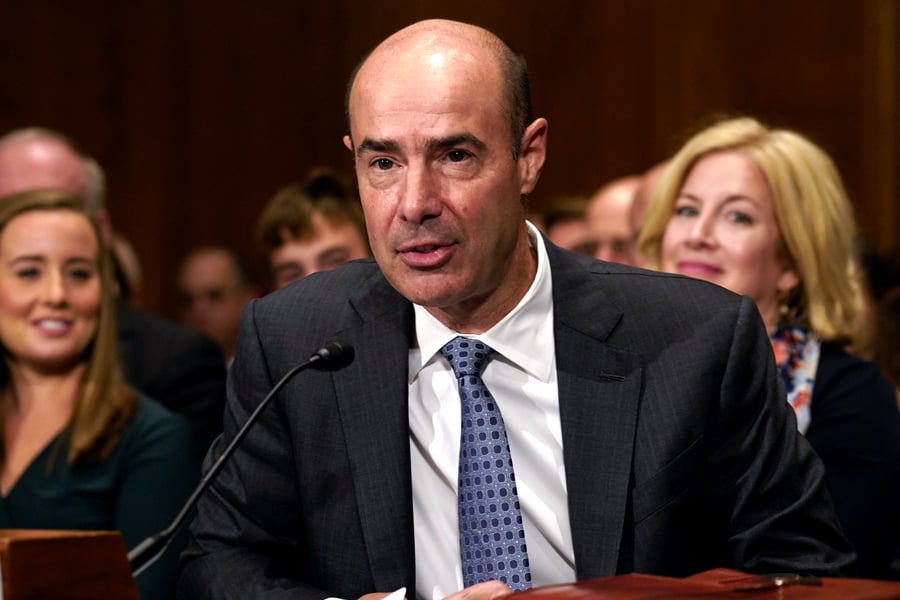The Department of Labor might have to revise its investment advice rule for retirement accounts without input from the agency's leader.
Eugene Scalia, the
Trump administration's nominee to become Labor secretary, told lawmakers Thursday he might have to recuse himself from the work involved in a reproposal of the DOL fiduciary rule, which would have raised broker standards for retirement investment advice.
Mr. Scalia was counsel for the brokerage industry lawsuit that resulted in a
federal appeals court vacating the regulation last year.
At a
nomination hearing before the Senate Health, Education, Labor and Pensions Committee, he said federal ethics rules could limit his involvement with matters connected to his former clients.
"In the area of the fiduciary rule, I would seek guidance from the designated agency ethics official at the Department of Labor regarding what my ability to participate would be," said Mr. Scalia, a partner at Gibson Dunn & Crutcher.
Mr. Scalia, son of the late Supreme Court Justice Antonin Scalia, is one of the top securities lawyers in the nation and has had an unusually successful record in cases that have overturned federal regulations.
[Recommended video: Financial planning wasn't even a thing 50 years ago]
The DOL indicated on its regulatory agenda that it would
propose a new fiduciary rule in December. That effort would largely be led by Preston Rutledge, assistant labor secretary and head of the Employee Benefits Security Administration.
If Mr. Scalia is not part of the process, political decisions about the release of a final rule might fall to Patrick Pizzella, the deputy labor secretary. Mr. Pizzella has been the acting head of the department
since Alexander Acosta stepped down in July following fallout from a lenient plea deal Mr. Acosta cut with the late Jeffrey Epstein when Mr. Acosta was a U.S. attorney in Florida.
The next iteration of the DOL fiduciary rule will likely be contoured to mesh with the Securities and Exchange Commission's
Regulation Best Interest, which is designed to raise the broker standard of conduct.
One of the arguments in the suit that killed the DOL rule was that the SEC was the more appropriate regulator to promulgate investment advice reform.
Register today for our Future of Financial Advice conference on Nov. 20.
Sen. Patty Murray, D-Wash., the ranking member of the committee, questioned Mr. Scalia on his history with the fiduciary regulation.
"I was retained by clients to address a rule — it was a controversial rule," Mr. Scalia said. "Thankfully, the Securities and Exchange Commission has now stepped in and self-adopted what's called a best-interest standard with respect to broker-dealers, who are folks that ordinarily are regulated directly by the SEC rather than the Department of Labor."
Ms. Murray said Congress wanted to provide a higher level of investor protection for retirement accounts overseen by the DOL than accounts regulated by the SEC. She pressed Mr. Scalia on whether the DOL would take a back seat to the SEC under his leadership.
"If confirmed, I would not cede responsibility to the SEC," Mr. Scalia said.
But he added that one of the concerns raised by the DOL fiduciary rule was that it "was treading on the SEC's jurisdiction."
He said it's important that there's a "balance" between regulators.
"I would want, if I'm confirmed, to work with the SEC to strike that balance," Mr. Scalia said.
The committee is expected to approve Mr. Scalia's nomination in a vote on Tuesday.







